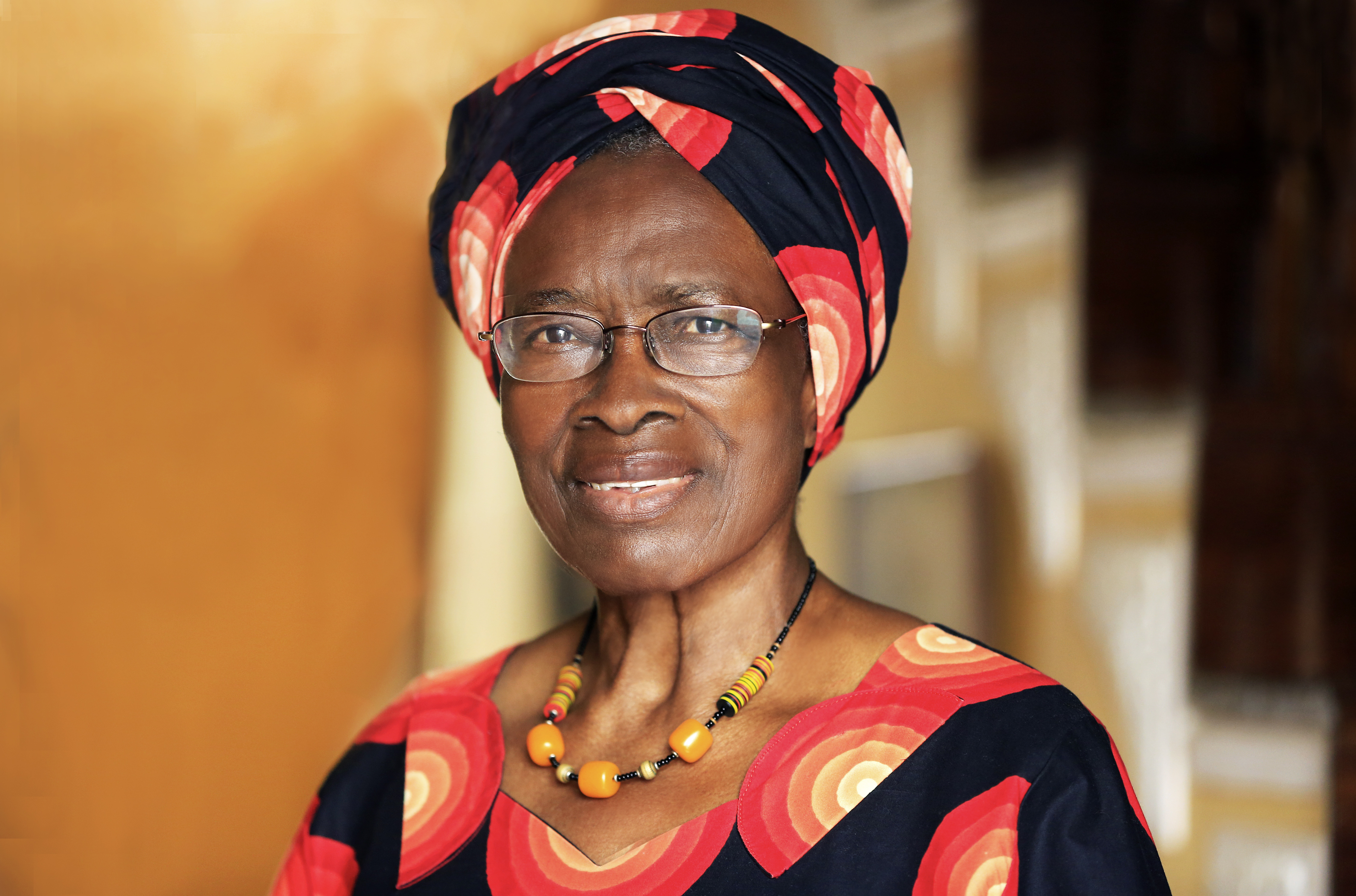
PHILADELPHIA (February 28, 2022) The American Friends Service Committee (AFSC) and Quaker Peace & Social Witness (QPSW) have nominated Dr. Miriam Were of Kenya for the 2022 Nobel Peace Prize.
The timing of this nomination is intended to draw attention to Dr. Miriam Were’s tireless work since the 1970s in promoting trust between governments, health authorities, and the citizenry through culturally sensitive programs,” says AFSC’s nominating letter. “Dr. Were has likened curative initiatives to mopping the floor under a leaking tap; consequently, her focus has been on community health approaches. These efforts facilitate the uptake of health initiatives among the most vulnerable people, including today’s vaccination efforts against COVID-19. Dr. Were has worked tirelessly for, and with clarity about, the many-layered complexity of health innovation among populations with limited access to health education and information.”
Quakers are committed to building peace, and without access to health education and information, peace is a distant dream. Dr. Were has embodied this dream over the years. During her long career, she has faced threats of violence and professional retaliation because of her refusal to bow to corrupt practices. Dr. Were has demonstrated the Quaker testimony of integrity to the highest degree even when her personal safety was jeopardized. This devotion and commitment have therefore nonviolently promoted both democracy and peace.
“Peace provides the best opportunities for all of us,” said Dr. Were. “Peace and health are the foundation for the well-being of humanity and the planet. I believe in the Community Approach as the modality for promoting both peace and health by empowering individuals and communities to lead in solving their problems including those articulated in the Sustainable Development Goals. I pray for peace and health in our families, in our communities and in our countries. I am deeply grateful that the American Friends Service Committee and Quaker Peace & Social Witness (QPSW) has nominated me for the Nobel Peace Prize.”
Graduating from the University of Nairobi with a medical degree in 1973 followed by master’s and doctorate degrees in Public Health from Johns Hopkins University in 1976 and 1981, respectively, Dr. Were has led an illustrative career for almost 50 years in the health sector. Just a few of her most notable professional positions include directing the Community-Based Health Care (CBHC) Project in Kakamega, Western Kenya; serving as Chief of Health and Nutrition in UNICEF Ethiopia; working as WHO Representative and Chief of Mission in Ethiopia; directing the UN Population Fund Country Support Team (UNFPA/CST) for East and Central Africa and Anglophone West Africa. She is also founder of the UZIMA Foundation, an NGO for youth-empowerment. She currently serves as Chairperson of the National AIDS Control Council (NACC) Kenya coordinating the national HIV/AIDS response in Kenya. She is on the Lancet COVID-19 Commission.
“It is an honor to have the opportunity to nominate Dr. Miriam Were for the Nobel Peace Prize,” said Joyce Ajlouny, General Secretary of AFSC. “Over the last two years, the COVID-19 pandemic has underscored the critical importance of public health policy and global health equity. Dr. Were’s work on community-based health initiatives around the world is powerful and essential for building a just and peaceful future.”
In 1947, the Nobel Peace Prize was awarded to the Friends Service Council (the precursor to QPSW) and AFSC on behalf of Quakers worldwide for their work during and after the two world wars to feed starving children and help Europe rebuild itself. The organizations use their nomination to highlight the work of others continuing the vital work of peacebuilding. Learn more about AFSC and the Nobel Peace Prize here.
###
The American Friends Service Committee is a Quaker organization that promotes lasting peace with justice, as a practical expression of faith in action. Drawing on continuing spiritual insights and working with people of many backgrounds, we nurture the seeds of change and respect for human life that transform social systems.